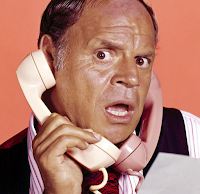Love and Rockets New Stories No. 7
Written and Drawn by Gilbert and Jaime Hernandez
Published by Fantagraphic Books
I don't know if I want Maggie and Hopey to grow up. These punk darlings of the 1980s are now the middle aged lost children of 2015 and maybe that cuts just a little bit too close to home for me. That's a story I know personally but maybe Jaime Hernandez has always reflected his characters back at me. Love and Rockets has always been there, a staple of comic shop racks and a badge of honor that I couldn't claim until about 10 years ago. Since I was a kid, I've known Maggie and Hopey like you know your buddies' older sister and her friends. You get the stories of teenage rebellion and coolness second hand, living vicariously through the stories and memories of others but never experiencing those adventures yourself. Even still for me, their punk days exist as legends that I know about more than stories that I know intimately because I was there.
I know the Maggie and Hopey that are older women; the Mags that was never able to quite put life together the way that she wanted and the Hopey who became a teacher and a mother. Their love is still legendary but it's these women, whose lives look more like mine does now through all of the the fumbling and the uncertainty, who are the ones I've grown up with. Love and Rockets New Stories No. 7 sees them return to Hoppers, the scene of so much laughter and tears, and not for the first time. We've already visited those ghosts with Maggie. This time, Jaime prepares us for a reunion, a chance to capture that old magic one more time. And that's what Maggie seems to be hoping for as well. Back then, it looked like it was Maggie + Hopey 4ever and maybe it still is but we have to define "4ever" differently.
Even when both brothers tell their one-off stories in this volume, there’s a sense of the characters running from their past. This issue of the comic is full of characters who are trying to move on but are stuck with their ideas and perceptions of events that have already happened. Jaime’ Princess AnimaUs and Tonta stories both are tales of characters seeking escape from the past while Gilbert’s stories tries to contextualize their own place among all of the previous Gilbert stories. Part of the richness of the characters and settings both brothers use is the depth of their personalities. Both work within these full narratives that continue and grow their past narratives so they develop their own continuity. It’s not a strict timeline-driven continuity but story-driven connectedness between their tales. It’s how we see the Maggie and Hopey or Killer of 2015 and reflect back on the Maggie and Hopey or Palomar of 1989.
Maybe as it is lost too much in the past, Love and Rockets New Stories No. 7 is a sad comic (see that cover.) We want Gilbert and Jaime to be punk again and their elements of that verve in this book. Jaime’s “Princess AnimaUs” and Gilbert’s “The Magic Voyage of Aladdin” are great fantasies by both cartoonists that throw off the restraint found in their more character driven pieces. But as we return to the characters we know the history of, both creators continue to remind us that is what the past is; it’s history. Maggie and Hopey were the great love story but they’re both older now. Palomar was this magical place but it’s changed and adapted with the rest of the world. The great thing is that Love and Rockets isn’t stuck in time; it’s not telling the same stories over and over. Its characters have been allowed to grow up, learn and develop. The rebellious punks of yesterday are the teachers and mechanics of today.










